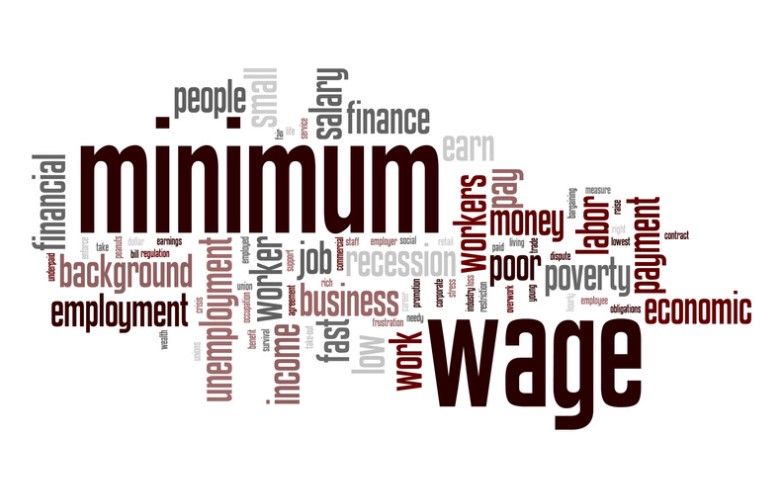Welcome to the bustling city of Toronto, where dreams are chased and opportunities abound. In this vibrant metropolis, thousands of individuals strive to make a living and provide for their families. But what happens when the wages earned are not enough to cover life’s necessities? That’s where the minimum wage in Toronto comes into play.
As we delve into this topic, we will uncover key information about who is covered by this wage, explore advocacy for an increase, examine its impact on the workforce, and take a trip down memory lane with historical changes. So fasten your seatbelts as we navigate through the ins and outs of Toronto’s minimum wage policy!
The Minimum Wage in Toronto

As of July 2023, the minimum wage in Toronto, Ontario, is $16.55 per hour. This applies to most employees in the general minimum wage category. However, there are different minimum wage rates for specific categories of workers, such as liquor servers and students under the age of 18. Liquor servers receive a minimum wage of $13.50 per hour, while students under 18 years old receive a minimum wage of $14.60 per hour.
These rates may change over time due to government regulations and adjustments to keep up with the cost of living. It is always advisable to consult official government sources or labour laws for the most current information on minimum wage rates in Toronto.
Advocacy for Minimum Wage Increase in Toronto
With the rising cost of living, there has been growing advocacy for increasing the minimum wage in Toronto. Supporters argue that raising the minimum wage would provide workers with better financial stability and help alleviate poverty.
One of the key arguments made by advocates is that a higher minimum wage can improve overall economic conditions. When low-wage workers make more money, they have more purchasing power to spend on goods and services. This increased consumer spending can stimulate economic growth and create job opportunities.
Furthermore, proponents argue that raising the minimum wage is essential for ensuring fair compensation for all workers. They believe that everyone deserves to earn a livable wage, regardless of their occupation or level of education. Increasing wages makes it possible to reduce income inequality and promote social justice.
The Impact of Minimum Wage on Toronto’s Workforce

Raising the minimum wage in Toronto has a direct impact on the city’s workforce. With higher wages, employees are better able to support themselves and their families, leading to increased job satisfaction and reduced turnover rates.
When workers earn a living wage, they are more likely to feel valued and motivated in their jobs. This, in turn, leads to improved productivity and overall job performance. Companies that pay fair wages also tend to attract top talent and have a competitive edge in the market.
Higher minimum wages can also benefit local businesses. When low-income workers have more disposable income, they are more likely to spend it within their communities. This creates a positive ripple effect by boosting consumer spending and stimulating economic growth.
However, some argue that increasing the minimum wage could lead to job losses or reduced working hours for employees as businesses try to cut costs. Policymakers need to strike a balance between ensuring fair compensation and considering the potential impact on small businesses.
Finding an appropriate minimum wage level is crucial for maintaining a healthy economy while supporting workers’ well-being. The impact of such decisions extends beyond individual paychecks – it shapes livelihoods and contributes towards building stronger communities across Toronto.
Historical Changes to Toronto’s Minimum Wage
The minimum wage in Toronto has undergone several changes over the years, reflecting shifts in economic conditions and societal demands. These changes have had a significant impact on workers and businesses alike.
In 1965, when the minimum wage was first introduced, it stood at just $1 per hour. Over time, it gradually increased to keep up with inflation and rising living costs. In 2018, there was a notable shift as the provincial government implemented a series of increases that would ultimately raise the minimum wage to $15 per hour by 2019.
However, this increase sparked debate among various stakeholders. Some argued that higher wages would alleviate poverty and improve workers’ quality of life. Others expressed concerns about potential job losses or reduced work hours for small businesses struggling to adapt to higher labour costs.
To address these concerns, subsequent governments have taken different approaches. In 2019, Ontario’s government halted further scheduled increases and conducted an independent review of the province’s employment standards legislation.
This review resulted in recommendations for more moderate annual increases tied to inflation rather than fixed increments. The goal was to strike a balance between supporting employees and minimizing adverse effects on businesses.
Who is Covered by the Minimum Wage in Toronto?

The minimum wage in Toronto applies to a wide range of workers, ensuring that they receive fair compensation for their labour. Whether you are an employee working for a large corporation or a small business, the minimum wage laws protect your rights.
Full-time and part-time employees are both covered by the minimum wage regulations. This means that regardless of how many hours you work per week, you are entitled to earn at least the minimum rate set by law. Temporary and seasonal workers, as do casual employees, also fall under this category.
It’s important to note that certain groups may have different rules regarding their eligibility for minimum wage protection. For example, students who work part-time while attending school may be subject to specific provisions outlined in employment legislation.
Furthermore, individuals who work on commission or receive tips as part of their compensation still need to meet certain requirements set out by law. The goal is to ensure that everyone earns at least the prescribed minimum amount based on their industry and job classification.
Conclusion
Navigating the minimum wage in Toronto can be difficult, but it should become easier with some basic understanding of what it is and how it affects employers and employees alike. It’s important to keep up to date on changes in the law and any new regulations that may have been put into place by either the provincial or federal government. With all this knowledge now at hand, you should be able to make informed decisions when setting wages for your business or negotiating a salary package for yourself.










